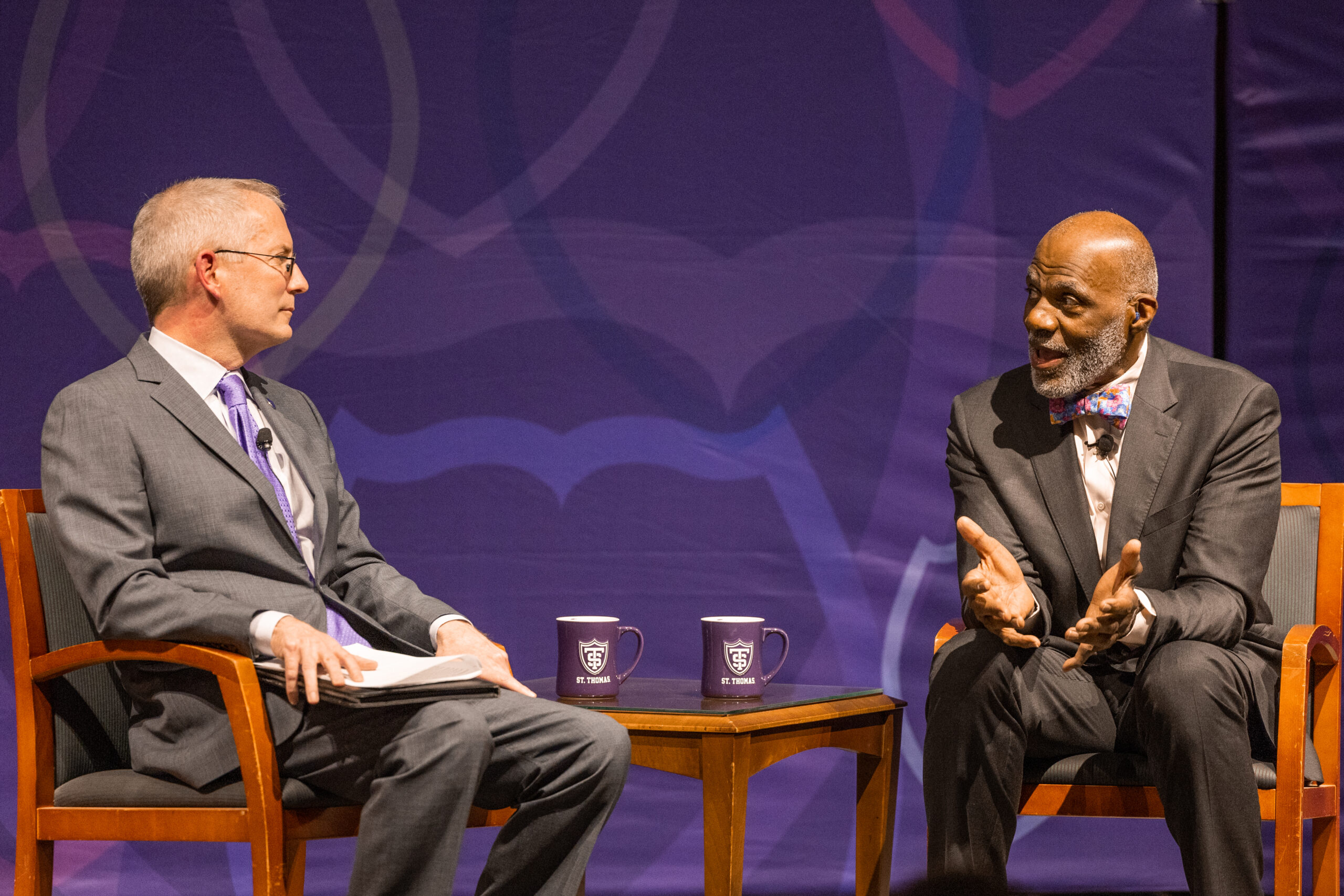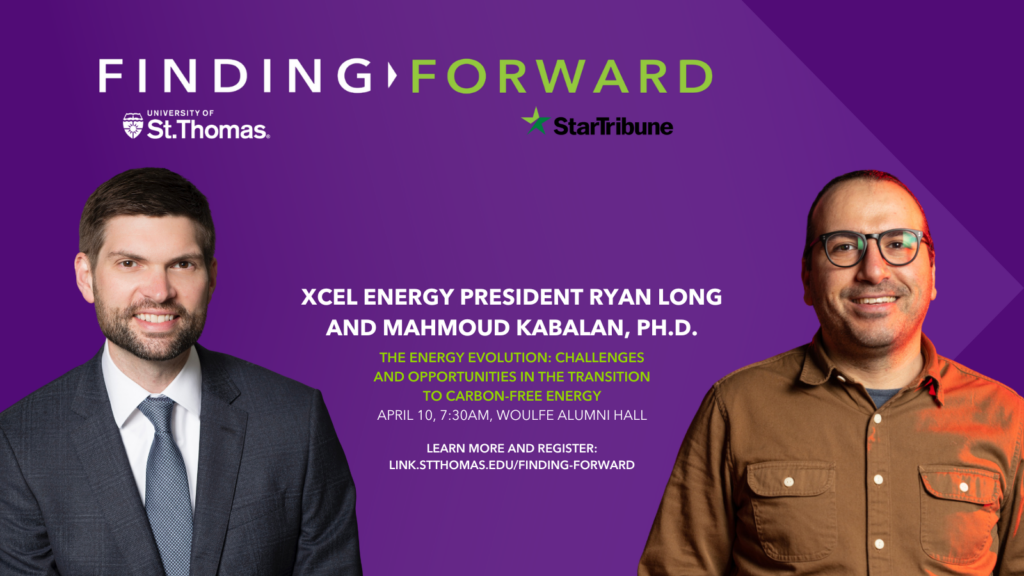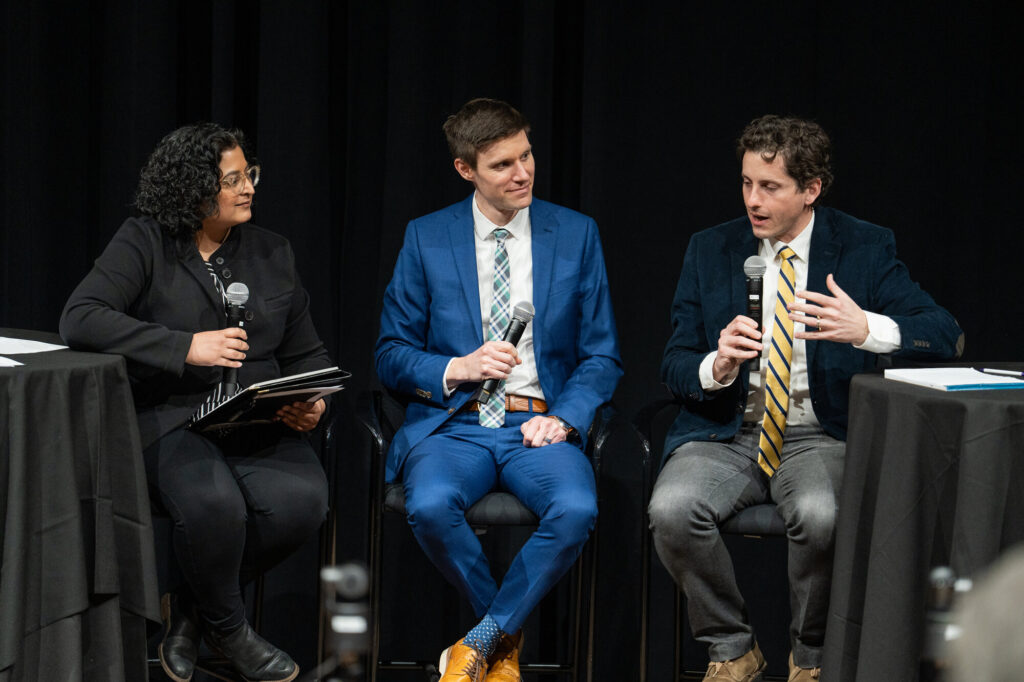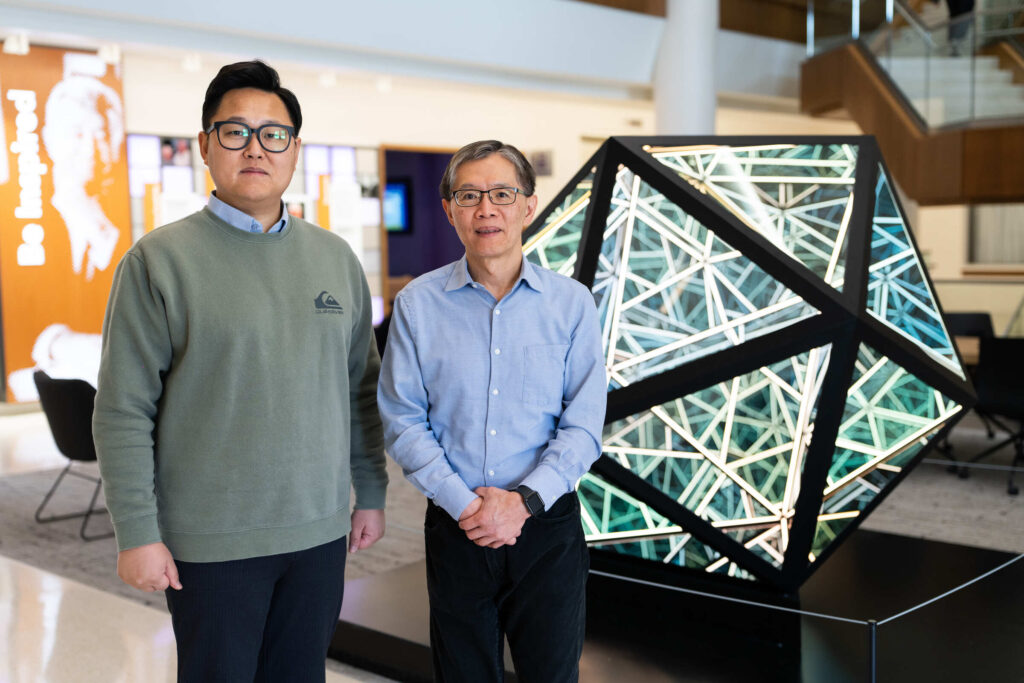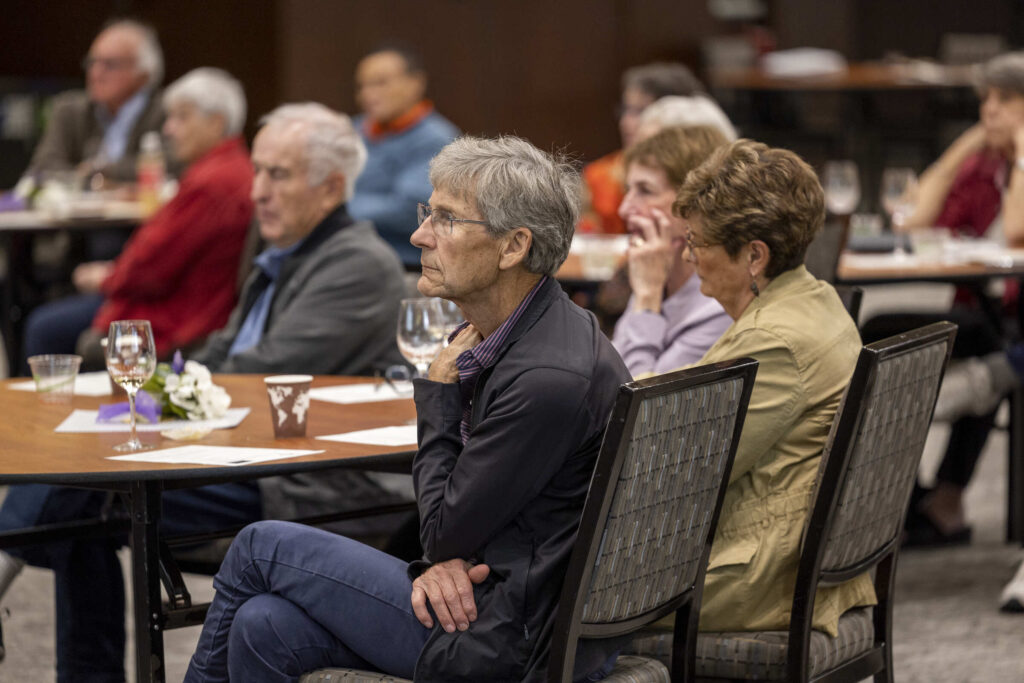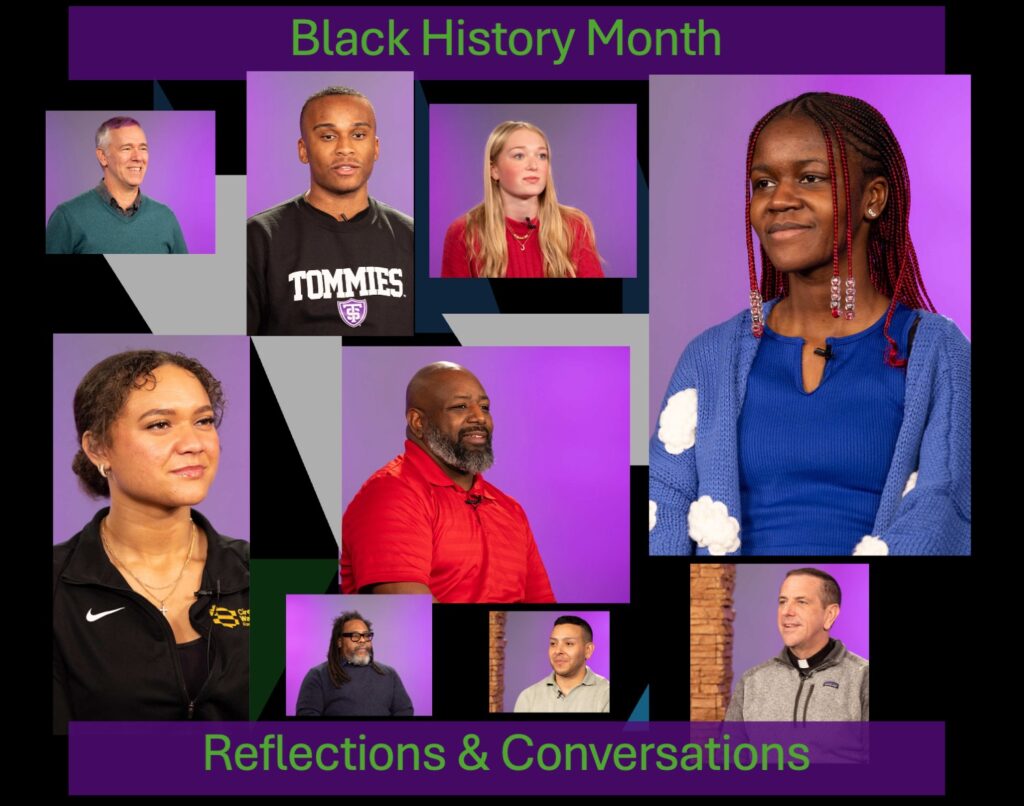Former Minnesota Supreme Court Justice Alan Page Discussed Polarization and Civic Duty at University of St. Thomas Finding Forward Event
At a time when winning at all costs is celebrated and scoring points on opponents seems to be the main goal of many public figures, Alan Page might seem like a throwback, with his focus on respect for others and doing the right thing.
Spend an hour in conversation with the former Minnesota Supreme Court Justice, lawyer, Minnesota Vikings legend, Pro Football Hall of Famer, and Presidential Medal of Freedom winner, however, and maybe you’ll come to see his approach as a path to a better future, not a reflection of the past. Maybe it’s the rest of the world that’s out of step; maybe turning away from respect and civil discourse is the underlying problem, giving an opening to those who seek to stoke divisions.
Page’s perspective was expressed in a recent Finding Forward event hosted by the University of St. Thomas. His worldview does not advocate compromising values, but instead celebrates incremental victories and using common ground issues to build trust and connectedness – the essential ingredients of a working society.
“The fact is that if we don’t confront those vulnerabilities in relationships with other people, there is nothing to hold us together,” Page said. “And that’s pretty scary.”
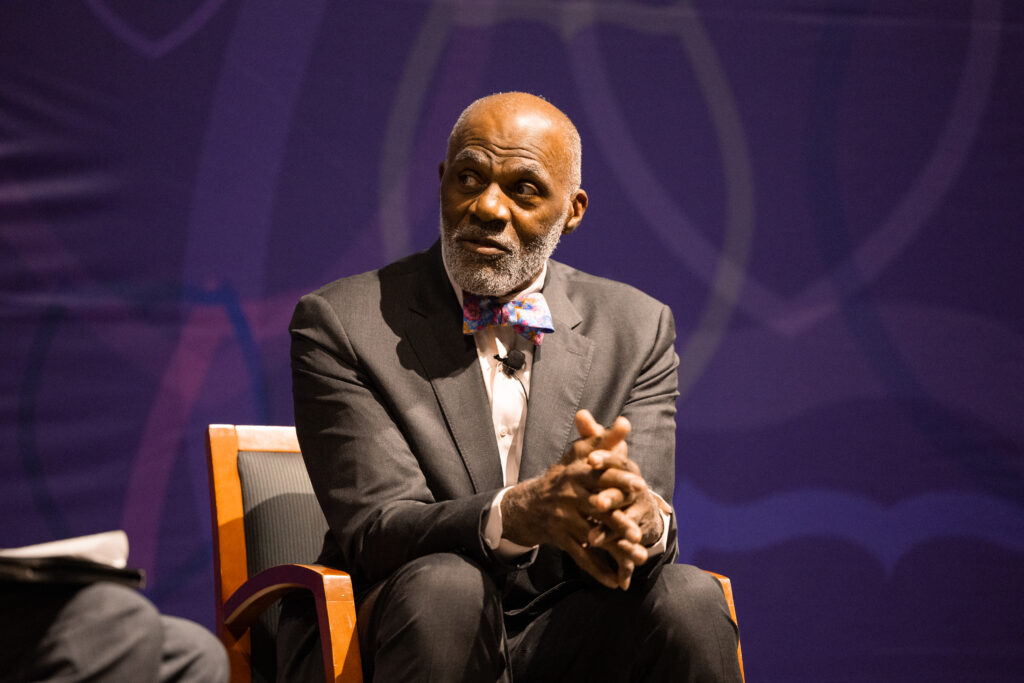
Finding a way forward in a polarized age
University of St. Thomas President Rob Vischer, host for the evening, opened by highlighting what polarization means today. Politically, it refers to the fact that people today are more locked into voting for one political party – even as they have come to like their “preferred” party less. But they see their party as less flawed or even “evil” than the other.
Often the details of policy disagreements figure into this little if at all. Instead, Vischer noted research indicating people often take positions that align with their social circles, perhaps subconsciously. The actions an individual can take to affect hot-button policy issues, from guns to abortion to immigration, are small. But the effects of being an outcast in a social group are large.
At the same time, society is reshaping itself to keep people in lockstep with their circles, from one-sided news sources to social media “echo chambers” to the type of vehicle one drives and the restaurants that are built in certain communities.
“The problem with our political polarization is not widespread disagreement, but widespread separation and alienation,” Vischer said. “We should not view polarization as a call to become better at persuading others that we’re right.”
Education, truth, and a focus on doing good: Page’s principles
Page has spent his life faced with divided societies, starting as a child in Akron, Ohio, in the 1950s at a time when state-sponsored racial discrimination was still the norm.
Even with those divisions and headwinds, Page said, he had a strong foundation, recalling a key lesson from his parents: “You’re as good as anybody else, but you’re no better than anybody else. If I was going to achieve success, whatever that meant, I had to be educated. Education is not the only tool, but it is an important tool. It can help minimize the effects of discrimination. The more education one has, the more power.”
In every phase of his life, Page said he has tried to focus on actions that can improve the lives of those around him. He attended law school while still playing for the Vikings, practiced law after, and when elected to the state Supreme Court, always made it his goal to find the best possible outcome for the case at hand – even going so far as to tell supporters never to expect him to rule a certain way on specific issues.
With doing right as a guiding star, Page then emphasized the importance of truthfulness and trust. “To the extent that there’s misinformation that people lie to us, recognize those lies and don’t buy into it,” he said. “And more importantly, for each of us and all of us, we have to be honest. We have to be truthful. We have to mean what we say.”
Doing the simple thing can be the hardest thing
While it might seem simplistic, it was clear from the audience questions that being honest and fair when dealing with “others” is anything but. People asked if they would be compromising their values to engage with those with whom they disagree, stated that even if they wanted to engage their opponents did not, and wondered if there were exceptions for cases where the people “on the other side” were clearly in the wrong.
In the face of the questions, Page was steadfast. “You stay engaged by staying engaged,” he said. “How do you run a marathon?” (“I don’t,” deadpanned Vischer.) “The secret to running a marathon is taking the first step and then the second step and then the third step. You have to start acting. We all have the ability and the power and we can talk all we want, but at some point we have to be willing to act.”
Returning to the theme of starting with common ground Page said, “We talk about equality. Equality doesn't mean ‘the same.’ We’re all different. And so what equality requires is we respect each other. We treat each other fairly and let our differences be what they are, but go forward together to try to make this world a little bit better than where we found it.”
Finding Forward’s next event will be held on April 10
Xcel Energy President for Minnesota, North Dakota and South Dakota, Ryan Long, joins St. Thomas engineering professor and founding director of the Center for Microgrid Research, Mahmoud Kabalan, PhD, to discuss challenges and opportunities in the transition to carbon-free energy.
